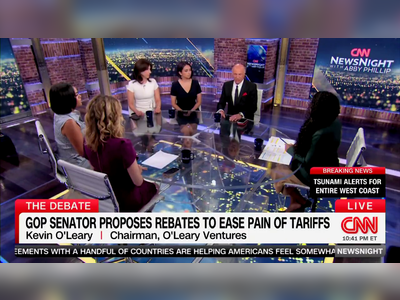UK Carmakers Fined £78 Million for Collusion Over Vehicle Recycling Competition
Ten automotive manufacturers and two trade bodies penalized for restricting competition in vehicle recycling practices.
The Competition and Markets Authority (CMA) in the United Kingdom has announced that ten car manufacturers and two industry associations have been fined nearly £78 million for colluding to restrict competition related to vehicle recycling.
This enforcement action comes as the European Union’s antitrust authorities also imposed penalties amounting to a total of €458 million (£383 million) for similar violations across the industry.
The CMA found that the involved firms breached competition laws by agreeing not to compete with each other regarding the advertising of the percentage of their vehicles that can be recycled.
Additionally, they were found to have collaborated in a manner that prevented the sharing of information about the recycled material content in their cars.
This lack of transparency meant that consumers could not fully assess the environmental credentials of the vehicles available to them, potentially affecting purchasing decisions.
According to the CMA, by obscuring recycling information, these manufacturers diminished the motivation to invest in environmentally friendly practices that surpass regulatory requirements.
The firms that have reached settlements with the CMA include notable manufacturers such as BMW, Ford, Jaguar Land Rover, Peugeot Citroen, Mitsubishi, Nissan, Toyota, Vauxhall, and Volkswagen.
The total fines levied add up to £77.7 million, with Ford receiving the highest individual penalty of £18.5 million, followed by BMW with £11.1 million.
Mercedes-Benz was involved in the alleged collusion but was not subject to a fine since the company self-reported its participation to the CMA prior to the enforcement action.
Lucilia Falsarella Pereira, a senior director of competition enforcement at the CMA, stated that colluding with competitors on service pricing or to limit competition is illegal and that these practices can extend to product advertising as well.
She emphasized that such collusion restricts consumer choice and reduces incentives for companies to develop new initiatives.
The CMA expressed a willingness to support businesses seeking to collaborate for environmental betterment without violating competition laws.
In a further investigation, the CMA discovered that eight manufacturers, which included BMW, Ford, Mercedes-Benz, Peugeot Citroen, Renault, Toyota, Vauxhall, and Volkswagen, collectively decided not to pay third-party companies to manage the recycling of 'end-of-life vehicles,' which are classified as either old or written-off vehicles with negligible market value.
This resulted in a situation where, for a period of 14 years, the recycling service providers could not negotiate prices with the manufacturers involved.
This enforcement action comes as the European Union’s antitrust authorities also imposed penalties amounting to a total of €458 million (£383 million) for similar violations across the industry.
The CMA found that the involved firms breached competition laws by agreeing not to compete with each other regarding the advertising of the percentage of their vehicles that can be recycled.
Additionally, they were found to have collaborated in a manner that prevented the sharing of information about the recycled material content in their cars.
This lack of transparency meant that consumers could not fully assess the environmental credentials of the vehicles available to them, potentially affecting purchasing decisions.
According to the CMA, by obscuring recycling information, these manufacturers diminished the motivation to invest in environmentally friendly practices that surpass regulatory requirements.
The firms that have reached settlements with the CMA include notable manufacturers such as BMW, Ford, Jaguar Land Rover, Peugeot Citroen, Mitsubishi, Nissan, Toyota, Vauxhall, and Volkswagen.
The total fines levied add up to £77.7 million, with Ford receiving the highest individual penalty of £18.5 million, followed by BMW with £11.1 million.
Mercedes-Benz was involved in the alleged collusion but was not subject to a fine since the company self-reported its participation to the CMA prior to the enforcement action.
Lucilia Falsarella Pereira, a senior director of competition enforcement at the CMA, stated that colluding with competitors on service pricing or to limit competition is illegal and that these practices can extend to product advertising as well.
She emphasized that such collusion restricts consumer choice and reduces incentives for companies to develop new initiatives.
The CMA expressed a willingness to support businesses seeking to collaborate for environmental betterment without violating competition laws.
In a further investigation, the CMA discovered that eight manufacturers, which included BMW, Ford, Mercedes-Benz, Peugeot Citroen, Renault, Toyota, Vauxhall, and Volkswagen, collectively decided not to pay third-party companies to manage the recycling of 'end-of-life vehicles,' which are classified as either old or written-off vehicles with negligible market value.
This resulted in a situation where, for a period of 14 years, the recycling service providers could not negotiate prices with the manufacturers involved.










